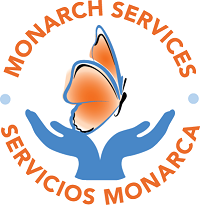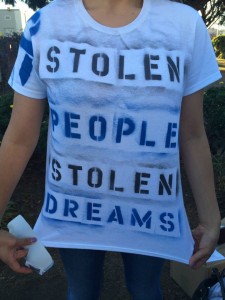What is Human Trafficking?
Trafficking means recruiting, abducting, facilitating, transferring, harboring, or transporting a person, by threat or use of force, coercion, fraud or deception or by the purchase, sale, trade, transfer, or receipt of a person, for the purpose of subjecting that person to involuntary servitude, peonage, slavery, slave-like practices, sex trafficking, or forced or bonded labor services.
It is estimated that 2 million people are trafficked worldwide. Annually, about 14,500 – 17,500 men, women, and children are trafficked. It is estimated that 27 million people are forced into slavery around the world. It is a $15 billion business. Locally, the SF Bay Area is a major port of entry for human trafficking.
There are many reasons that people are trafficked:
- Domestic Service
- Prostitution
- Servile Marriage
- Garment factories
- Begging/peddling
- Agriculture
- Restaurant work
- Construction
- Hotel/motel housekeeping
- Drug Trafficking
- Other informal labor sectors or criminal activity
These survivors are usually provided poor living conditions, little food, and less clothing. They are denied medical and dental care. On top of these basic human needs, there is often also a language barrier, with nobody to offer interpretation or ESL (English as a Second Language) classes. Survivors of human trafficking are in desperate need of these things, as well as job training, financial literacy and counseling/therapy sessions.
What are some of the options for relief and recovery for trafficking survivors?
Criminal prosecution of traffickers – survivor as a witness to aid prosecutors to punish traffickers and restitution
Immigration relief for survivors – survivor as a self-petitioner for T-visa, U-visa, continued presence, work authorization; also VAWA (Violence Against Women Act), asylum, Special Juvenile Immigrant Status (SJIS)
Civil Litigation – survivor as plaintiff bringing suit against traffickers for monetary damages.
Repatriation – helping a survivor return to home country if they want to return
What is a T-Visa?
Must be a survivor of a severe form of trafficking; present in the U.S. on account of trafficking; complied with reasonable requests for assistance in investigation or prosecution of acts of trafficking (if over 18 years old); and would suffer extreme hardship involving unusual and severe harm if removed
- Enables certain survivors of human trafficking to live and work in the U.S. for four years
- Survivors can apply for adjustment of status and lawful permanent residence after three years or the end of a criminal case.
- Can petition for survivor’s spouses and unmarried children under 21 (or parents if survivor is under 21)
- Does not require a law enforcement Supplement B Certification.
What is a U-Visa?
Must be a survivor of an enumerated crime who has suffered physical and/or mental trauma; who has information concerning the crime; and who has helped, is helping, or is likely to be helpful for a federal, state, or local investigation or prosecution
- Enables certain undocumented survivors of crime to live and work in the U.S. for up to four years
- Can apply for adjustment of status and lawful permanent residence after three years
- Petition for survivor’s spouses and unmarried children under 21(or parents if survivor is under 21)
- Requires a law enforcement Supplement B certification
It’s important to remember that people who are trafficked tend not to be aware of it, and so they may not identify themselves as a survivor. For more information, contact one of the agencies below.
- Monarch Services ~ Servicios Monarca 24 hour toll-free hotline: (888) 900-4232
- U.S. Department of Justice Trafficking Hotline: (888) 428-7581
- Local law enforcement: 911
Sources:
- Lee, Ive and Parker, Lynette, “Understanding Trafficking in Persons, Learning How to Identify Victims, and Options for Immigration Relief”, Webinar March 2009
- Trauma Center at Justice Resource Institute, Project REACH materials, 2008
- Asian Pacific Islander Legal Outreach, “Asian Anti-Trafficking Collaborative Human Trafficking Fact Sheet”

